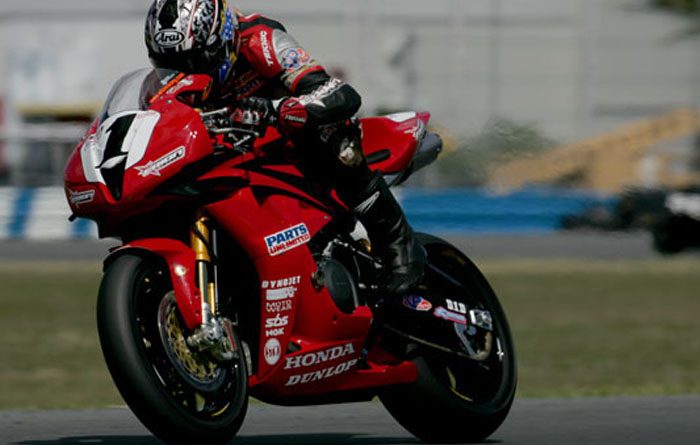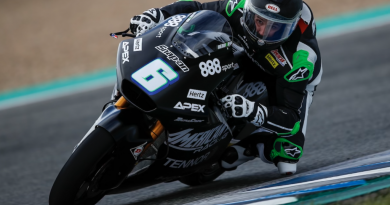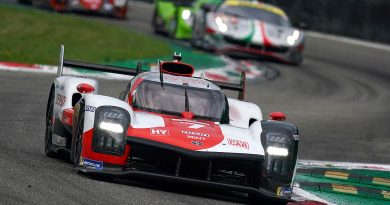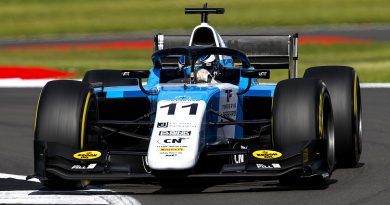The Gemini Effect: Identically Prepared Motorcycles
Gemini is the third astrological sign in the zodiac, and people born between May 21 and June 21 are said to be “Geminis.” The sign is represented by the Greek mythological twins Castor and Pollux, which is the name of twin stars in our solar system. NASA named its first two-person space exploration project “Gemini” because the spacecraft was the first to carry two astronauts on-board.
In motorcycle road racing, having a teammate provides many advantages, one of which is that two riders can share the development work and provide better feedback and “proof of concept” if a setting adjustment or component change yields the same or similar benefits for both riders. But, of course, no two riding styles are exactly the same, so sometimes what works for one teammate may not work as well, if at all, for the other teammate.
In the Medallia Superbike Championship, fans and pundits alike have often wondered what Westby Racing would be like if Mathew Scholtz had a teammate. Not only would it provide competition for Scholtz, since a cardinal rule of motorcycle road racing is that the first person you have to beat is your teammate, but getting a second opinion on bike setup, as already mentioned above, provides obvious advantages.
On the other hand, when racing teams feature more than one rider and, as the say goes, both riders are on “identically prepared motorcycles,” any mechanical troubles that befall one rider could also happen to the other rider.
For example, the 2007 Daytona 200, in which Honda factory teammates Miguel Duhamel and Jake Zemke both DNFed in the race for what turned out to be the same exact reason. Not only that, but Erion Honda’s Aaron Gobert, one of the Honda support team riders, also DNFed with the same exact mechanical issue. Miraculously, Gobert’s teammate Josh Hayes was able to finish the race, but even he suffered similar mechanical issues, which dropped him out of the lead pack and ultimately resulted in him finishing in sixth place.
Post-race, it was quickly determined that all four Honda CBR600RRs had sufficient fuel in their tanks when they encountered problems during the race.
The four machines all featured the same aftermarket quick-fill dry-break fuel tank system, and American Honda discovered that there was a fuel starvation problem caused by a venting issue associated with the system. The CBR600RR motorcycles raced by Duhamel and Zemke, as well as Gobert and Hayes, were the only Hondas that suffered fuel starvation problems at Daytona, and they were the only four bikes running that particular dry-break system. There was a very large contingent of Honda CBR600RR motorcycles entered in the 2007 Daytona 200 that were not equipped with the same dry-break system, and they didn’t experience any problems.
Looking back at that particular Daytona 200, we asked Hayes if he was aware of the problem with the American Honda and Erion Racing machines. “When I’m on the track, I don’t really think about what may have happened to my teammate. Although, they did bring me in for an early pit stop, my crew didn’t really say why. I think that early ‘splash-and-go’ helped me go the distance despite experiencing the same problems that Miguel, Jake, and Aaron Gobert had.
Gus Rodio has raced for most of his career on a one-rider team. This season, however, he has a teammate on the Rodio Racing – Powered by Robem Engineering team. At Michelin Raceway Road Atlanta, Rodio’s teammate Rocco Landers suffered an obvious mechanical problem in REV’IT! Twins Cup, and he did not finish (DNF) the race. Despite Landers’ woes, Rodio, in fact, finished as runner-up in that race, and he didn’t experience any of the problems that Landers did. But did the thought cross his mind during the race, since he was aboard a motorcycle that was “identically prepared”? “I honestly didn’t know what happened to Rocco,” Gus Rodio said, “I looked behind me, and I didn’t see him there, and I thought, ‘That can’t be right. There is no way he’s going to let us drop him like that.’ So, I guess I thought about it a little bit, but I really didn’t worry too much. The team puts together a really good bike, and I never doubt the bike and what it’s capable of.”
So, this is a case of—and I mean this with the highest level of respect—as the old saying goes, “ignorance is bliss.” Just as Josh Hayes didn’t know what happened to the other three Honda factory and factory-supported bikes in the 2007 Daytona 200, Gus Rodio also didn’t know what happened to Rocco Landers’ bike in REV’IT! Twins Cup race one at Michelin Raceway Road Atlanta last month.
And that’s, obviously, a very good thing. Motorcycle road racers focus on the immediate task at hand.
The post The Gemini Effect: Identically Prepared Motorcycles appeared first on MotoAmerica.




